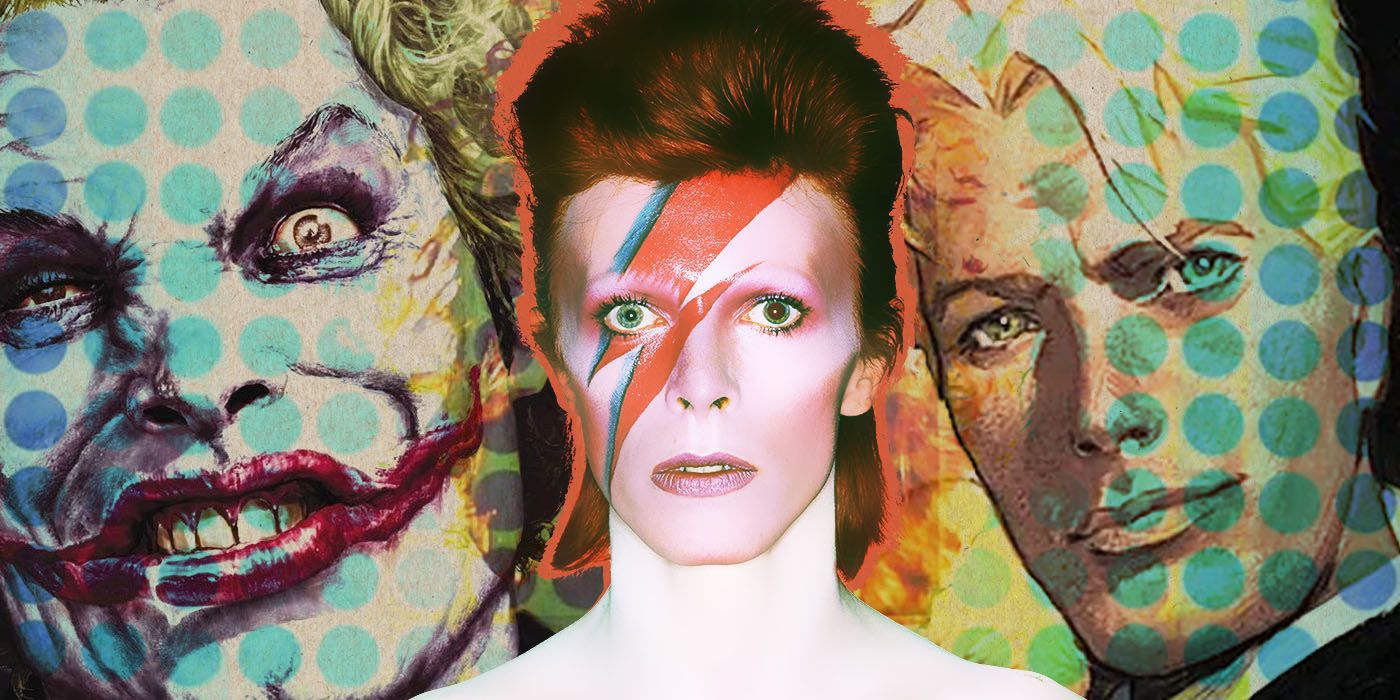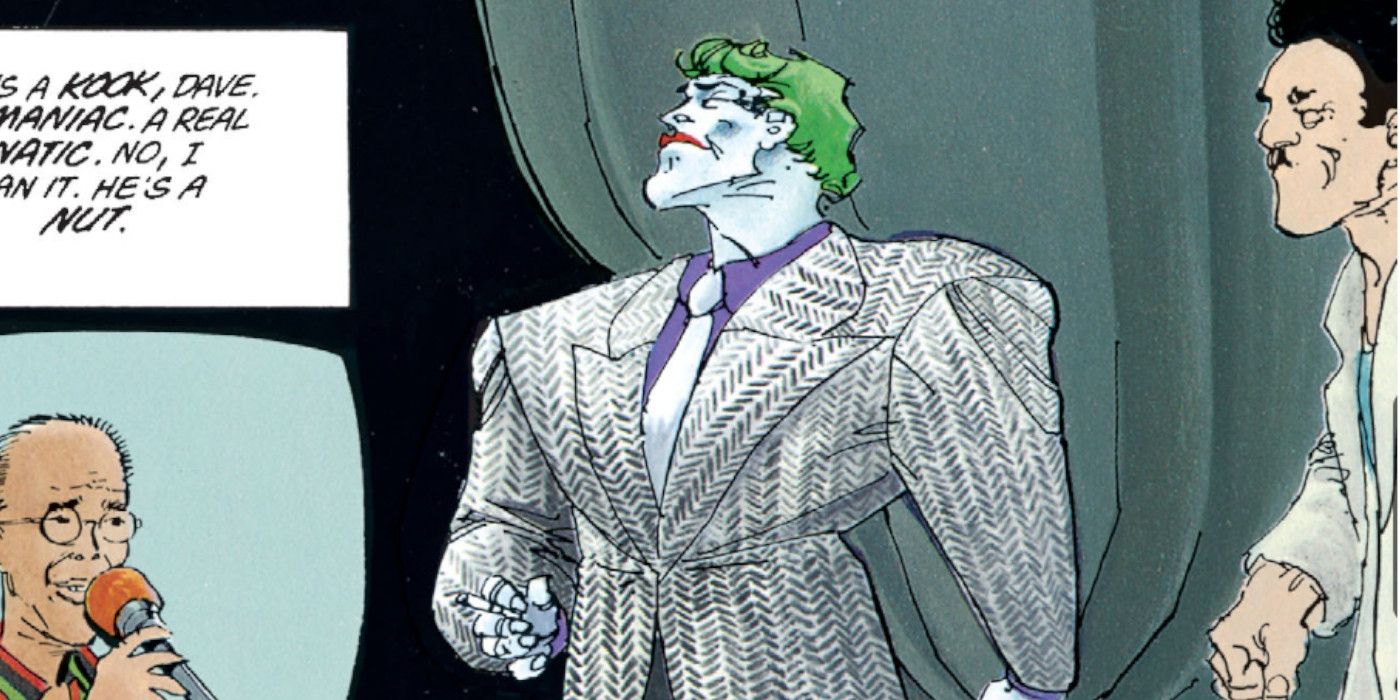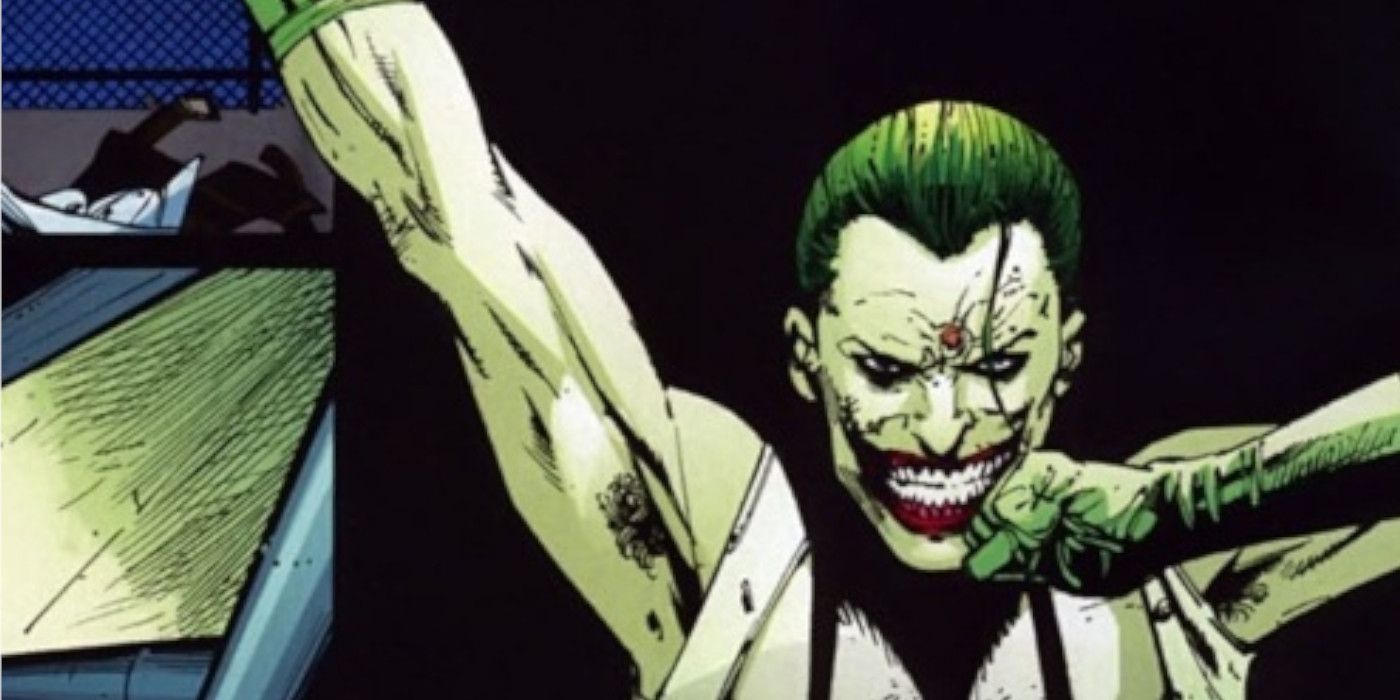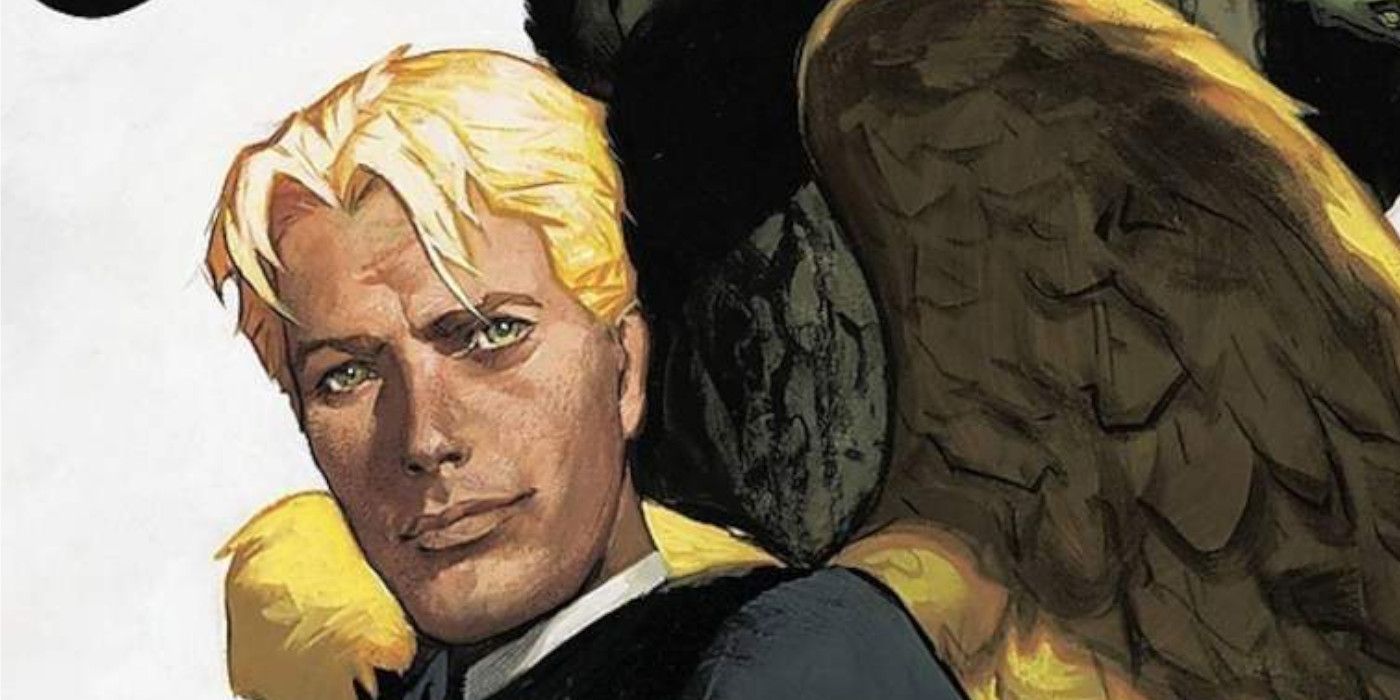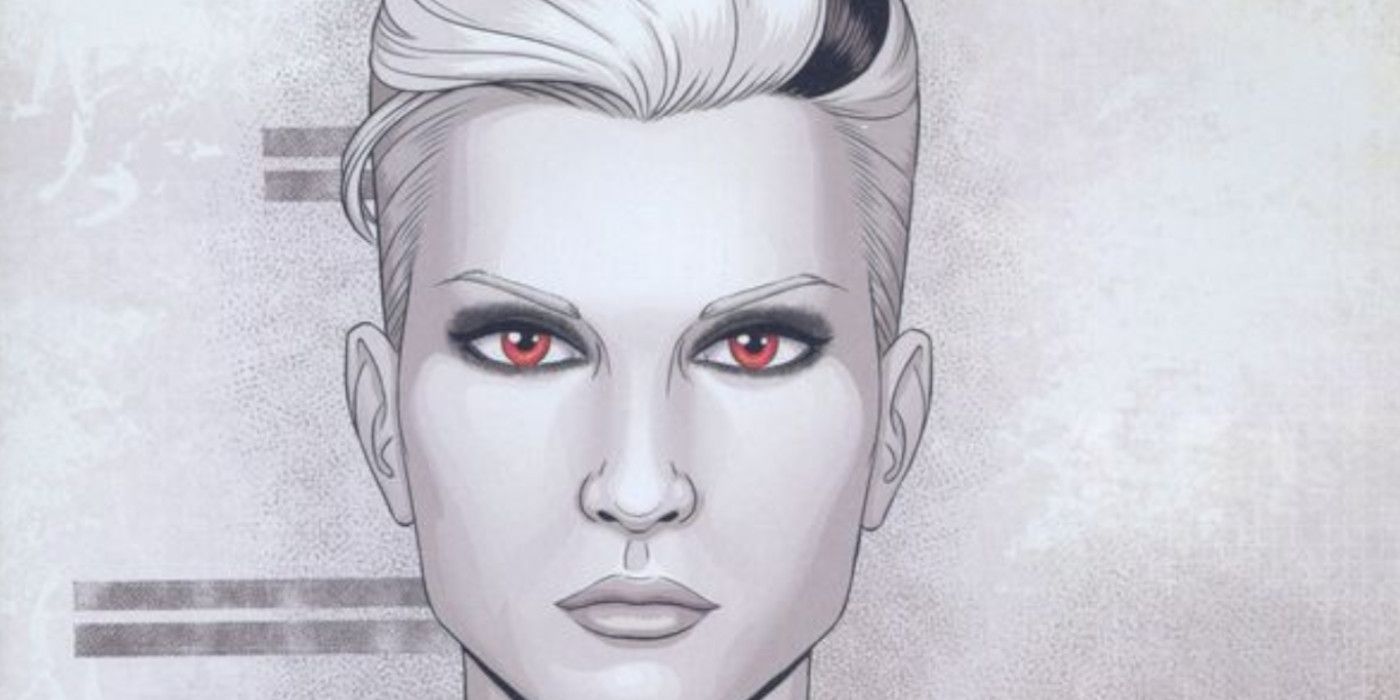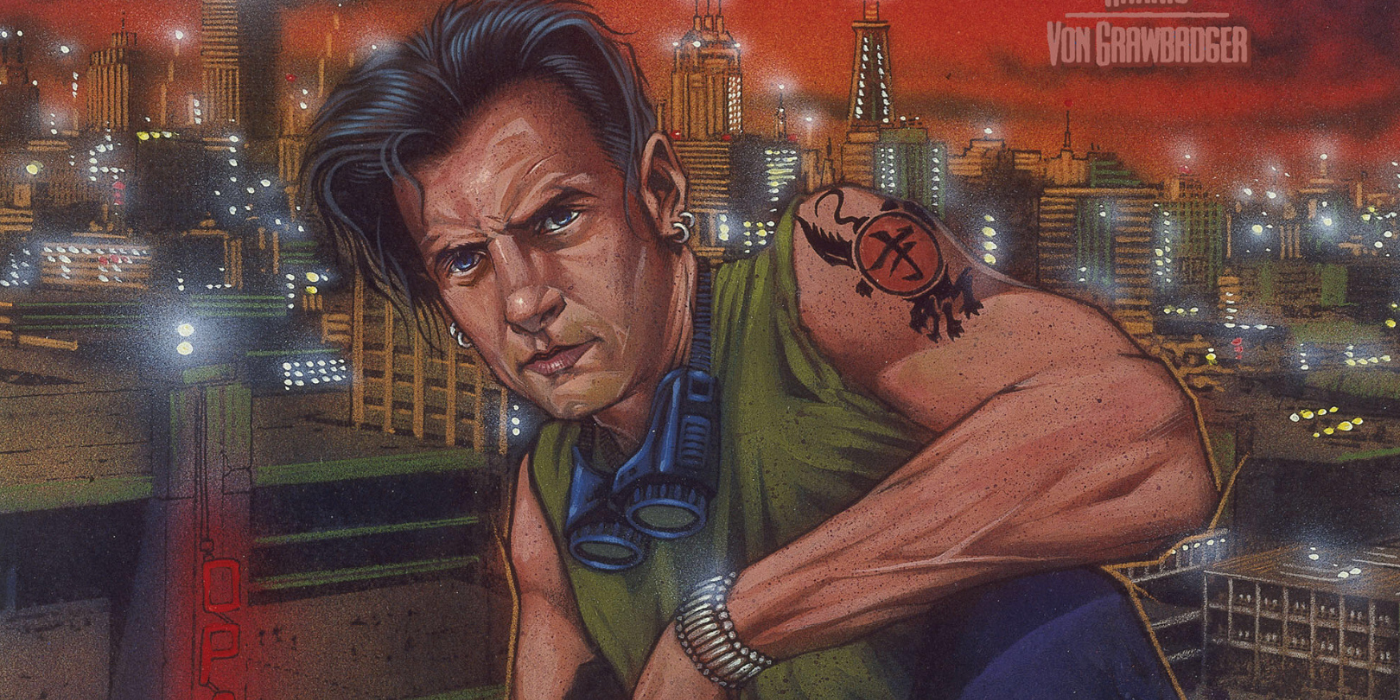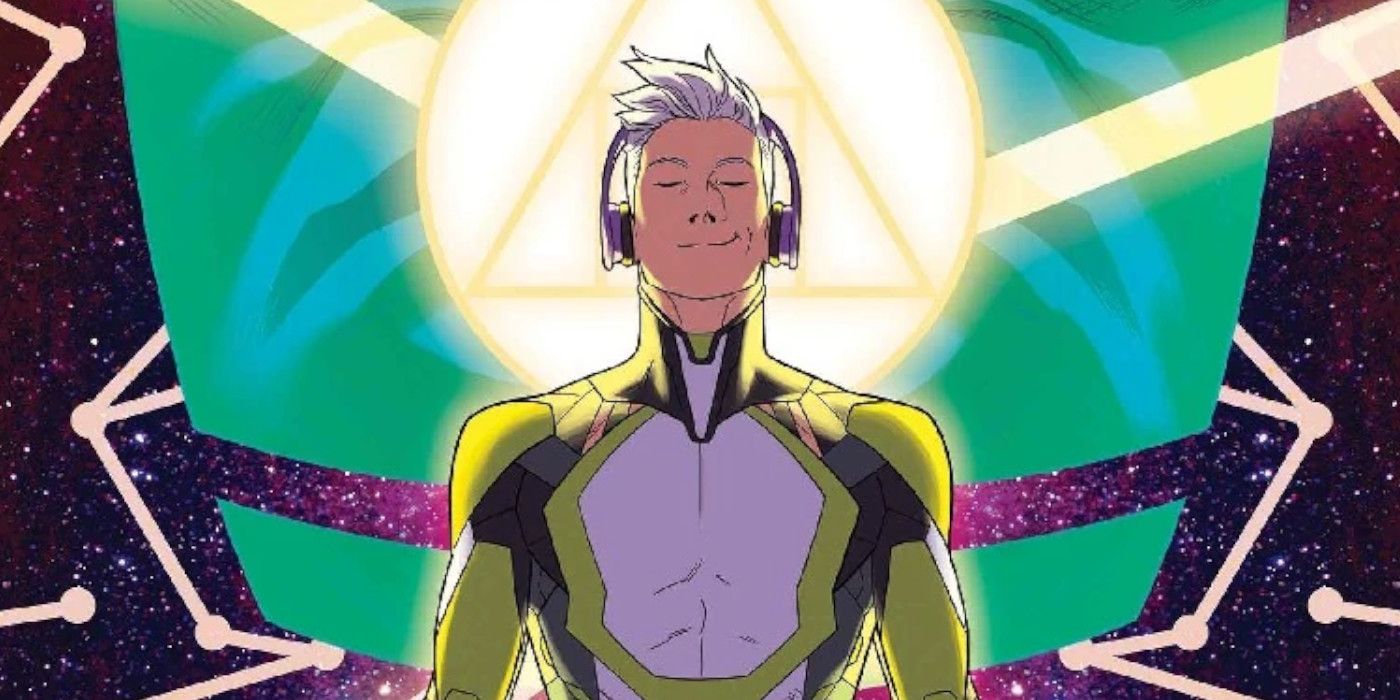Last Saturday would have been the 75th birthday of legendary rock star David Bowie. Throughout the weekend artists and musicians paid tribute to the icon who was known for his theatrical personas, experimentation with multiple musical styles, and helping to shape the pop culture landscape as we know it today. However, what few people know about is the influence Bowie had on the comic book industry and wider geek culture.
One only has to look at many of Bowie’s iconic characters such as Major Tom, Ziggy Stardust, and the Thin White Duke to see how he could have inspired many artists and writers to base their characters around one of music’s most enigmatic figures. Here are a few examples of the scary monsters and super creeps inspired by the legend.
Two Versions of Batman's Nemesis, The Joker
When Frank Miller decided to write his defining Batman story The Dark Knight Returns in 1986, it was obvious that he was going to reimagine the Clown Prince of Crime to fit his grim and gritty reimagining of an older Dark Knight. This was around the same time that Bowie was at a commercial high, having already inspired a variety of music genres. One of these was New Romanticism, a style that Miller’s Joker exudes in his flamboyance, pristine white suit, perfectly kept hair, and prominent, suggestive red lips.
The style of this interpretation of the Joker bears a striking resemblance to Bowie’s clown persona on the cover of the album Scary Monsters and (Super Creeps), with the Clown Prince also exhibiting many of Bowie’s mannerisms such as casual cigarette smoking and use of the word “darling." Many, including Neil Gaiman, have made the connection between the legendary singer and Miller’s Joker, with Gaiman saying that the only way a screen adaptation of The Dark Knight Returns would work is if Bowie himself was cast in the role.
This would not be the last time a comic book writer would create a Bowie-inspired Joker, as Grant Morrison borrowed heavily from the rock star’s aesthetic and personality when crafting the iconic villain in his much respected Batman run. Expanding on the “super sanity” concept to explain the Joker’s madness that he introduced in Arkham Asylum: A Serious House on Serious Earth (by Morrison and Dave McKean) this version of the Clown Prince invented various “personas” for himself (much like Bowie did with his many iconic characters). One of these, “The Thin White Duke of Death," manifested with the Joker's face being bandaged and having mismatched eyes after being shot by a fake Batman. The eyes, slick back hair, suspenders, and nickname for this version of the Joker was obviously influenced by Bowie’s “Thin White Duke” stage persona.
Interestingly enough, Bowie was rumored to have been in the running for the role of the Joker in the ‘80s, alongside Bill Murray as Batman. Decades later, Jared Leto explicitly stated that his take on the Joker in the DC Extended Universe was inspired by Bowie as well, demonstrating that the two Thin White Dukes were often linked to one another through the years.
Lucifer Morningstar of Neil Gaiman's The Sandman
Akin to how Alan Moore had John Constantine’s look to be undeniably based on Sting, Neil Gaiman had his version of the Prince of Darkness based on another rock icon.
While obviously exhibiting the personality traits of Milton's Lucifer in Paradise Lost, the Vertigo Comics version of the devilish character was clearly modeled to resemble Bowie, with Gaiman adamantly instructing artist Sam Keith to make Lucifer look like the rock icon.
Lucifer of The Wicked + The Divine
The Wicked + The Divine (by Kieron Gillen and Jamie McKelvie) is, interestingly enough, a series revolving around Gods coming to Earth and becoming pop stars. It should come as no surprise that one of the characters included in the series was influenced by one of rock’s most mythological figures.
The Lucifer of the series (who goes by the name “Luci”) is another character visually inspired by Bowie’s Thin White Duke persona, who also pays homage to his various androgynous personas. Furthermore, Gillen confirmed that the other main characters in the series were inspired by Bowie as well. In an interview for Vox, Gillen believed that pop stars and musicians were the closest the world had to superheroes and Gods in real life, and much of the series plays out as a love letter to pop fandom and the rock icon in particular.
The Obvious DC Superhero Starman
“Starman” is one of David Bowie’s best-known songs and it was his performance of the song on Top of the Pops that catapulted him into superstardom. Starman was also the name of a DC comic book superhero who had existed since 1941.
The iconic nature of the song was not lost on writer James Robinson when he rebooted the character in his acclaimed ‘90s series, having one iteration of Starman, Mikhaal Tomas (who also has a very glam rock inspired look), be influenced by the singer in the comic itself. While there were many Starmen in the series, Mikhaal says in Starman #28 (by Robinson and Craig Hamilton) that he took the moniker because of how he related to the song, which is about an alien coming down to Earth to help save humanity from its own destruction.
Nov-Var (Marvel Boy) of Marvel's Young Avengers
During his time writing Young Avengers, Kieron Gillen also managed to inject his Bowie fandom into his version of Marvel Boy by making the Kree alien a fanboy of Earth culture and making him obsessed with pop music. Nov-Var’s liberal sexuality and alien rock star aesthetic is reminiscent of Bowie’s character in Nicolas Roeg’s film The Man Who Fell to Earth, and make it obvious that this was another attempt by Gillen to modeling a hero after his idol.
These only serve as a small example of fictional characters that are Bowie-inspired (the long-running "David Bowie is every video game character" meme is one such example). He was recently the star of his own comic book and the Arrowverse literally had a fictional version of David Bowie in a reoccurring role. Needless to say, his impact on comics and other mediums will undoubtedly remain intact and a part of his longstanding legacy.

